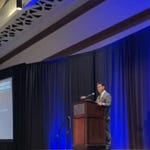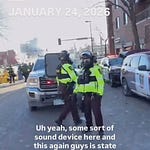This new video is paired with a re-release text piece. The article was first published July 28, 2025 during our visit to Delano.
By Nick Valencia | July 28, 2025
CENTRAL VALLEY, CALIFORNIA — Driving through the grapevine, two and a half hours north of Los Angeles, you reach Delano—the birthplace of the farmworker movement led by Cesar Chavez. It was here that his phrase “¡Sí se puede!” (Yes We Can!) once shook the fields as a rallying cry that galvanized a generation.
What I learned upon arriving for the first time is that visibility fades.
Today, Delano feels less like a monument to progress and more like a place defined by conservative values, grueling labor, and a legacy that moves forward not in the fields but in the classrooms and on the football fields.
In conversations with farmworkers, high school athletes, and even Chavez’s own granddaughter, I found a community that values hard work over history—and a legacy at risk of slipping quietly into the past.
“This Is Our Job. America, It’s Hard.”
Just ten minutes outside Delano, I walked into the fields as the day’s heat began to rise. By mid-morning, workers had already been in the vineyards for hours, their hands rough, their shirts soaked with sweat.
“This is our job. America, it’s hard,” one man told me, standing under a relentless sun, holding a bundle of table grapes.
If you look at the packaging on your grapes, they probably came from Delano. These grapes are headed for your pool parties, and your kids’ lunchboxes. Immigration at your kitchen table.
And here in the fields, the camaraderie is quiet but profound.
“We’ve been working the same fields. It’s nice sometimes to run into friends you haven’t seen for 10 or 15 years,” one picker told me. “That’s what I like about the fields.”
When I asked what they thought of their work, one woman smiled.
“For us, it’s nice because we live nearby. I get home quickly to be with my family. I’ve even brought my kids to work with me—showing them it’s humble work. But it allows them to study and get ahead.”
And yet, just beneath the surface, there is fear.
Fear in the Fields
“Things are a bit difficult right now,” a worker with 30 years of experience told me. “You’re seeing immigration agents in lots of different places. Thank God it hasn’t touched us yet—and hopefully it won’t—because we want to come home to our kids.
“We don’t feel safe, honestly. We go to work in fear,” another man chimed in, his voice steady but tense.
“We’ve been here 30 years,” another man said. “We have more of a life here than in Mexico. Going back wouldn’t be easy.”
Recent raids have rattled them. Still, fear is no match for necessity. “Yeah, I’m scared to maybe go out and work,” one man said. “But at the same time, I have to work, right? The only thing we can do is right. Only the village can save the village. Yes, it’s only us.”
He said it softly, almost as if trying to convince himself. Perhaps it’s because these workers are surrounded by a culture that doesn’t see them—conservatives who run the packing sheds and middle managers who, just minutes from the vineyards, fly Thin Blue Line and American flags. There’s an open secret here: nearly all of the labor is undocumented, and yet the raids have not come. Coincidence? No one I spoke with thinks so. They believe it’s only a matter of time—and that Trump’s hands-off approach isn’t mercy. It’s strategy.
The unease in their voices lingers, a tension that colors every conversation. It’s in that silence, in the weight of their stares, that I started to see how even Chavez’s legacy feels fragile here.
“What Did Cesar Chavez Do for Us?”
Closer to the city center, rows of almond trees line the roads. There are pistachios too, but what you’ll mostly find in Delano are grape vineyards—even just a few minutes from the local Starbucks.
At one of those vineyards, I asked them about Cesar Chavez, and the answers were striking. One forewoman gestured toward the grapevines: “Cesar Chavez? What did he do for us? I still make $16.50 an hour. I work under triple-digit temperatures. You want to see what Cesar Chavez did for us? Look here.” She pointed at the vines. “They used to be at our shins. We bent over eight, nine hours a day. Now we can pick them standing up. That’s the advancement.”
Progress here isn’t measured by parades or street names. It’s measured by the small things—like the moment workers are allowed to stop when temperatures climb past 105 degrees, or the chance to buy a house after decades of backbreaking work.
A Town That Moves Forward by Inches
As a kid, my father used to sit in the stands during my varsity football games, yelling “¡Sí se puede!” after every touchdown. In Delano, when I asked the high school players if parents chant that from the bleachers, they just shook their heads. “No. Maybe at the soccer games,” one said with a grin.
I spent time with Luis Diaz, a high school football player who works the fields in the morning before practice. He looked me in the eye and said, “Don’t feel sorry for me. Kids work in sandwich shops or ice cream places. This is just what we do.”
I asked him about Cesar Chavez, but the name doesn’t carry the weight I imagined here. There’s no street named after him. No parade on his federal holiday. The high school that bears his name is where the town’s wealthier families send their children—a bitter irony for a man who fought for the working poor.
Even his granddaughter—now a high school dance coach— wept on camera when I spoke with her. When asked what made her cry, she said she feels she’s falling short of his legacy, that the fire he lit is flickering under the weight of time and politics.
At the heart of Cesar Chavez’s movement was a deep skepticism of capitalism. Perhaps that’s why, in a town built on relentless labor and survival, his memory feels more symbolic than alive.
“We Work Hard, Right?”
As one worker reminded me, these are the people who make America’s abundance possible. “We work hard, right? We don’t ask for any handouts. There’s a lot of hardworking people here who contribute to this country, and I think this is what this country is about.”
In 1986, Ronald Reagan’s Immigration Reform and Control Act granted amnesty to immigrants who had lived here for at least five years and had clean records. It was a recognition of their value—a recognition missing from today’s politics. “Government should take us into consideration again,” one worker said, “like they did back then.”
The fields may still whisper “¡Sí se puede!,” but the voices are quieter now—drowned out by the hum of machinery, the weight of survival, and a nation that no longer looks their way.











